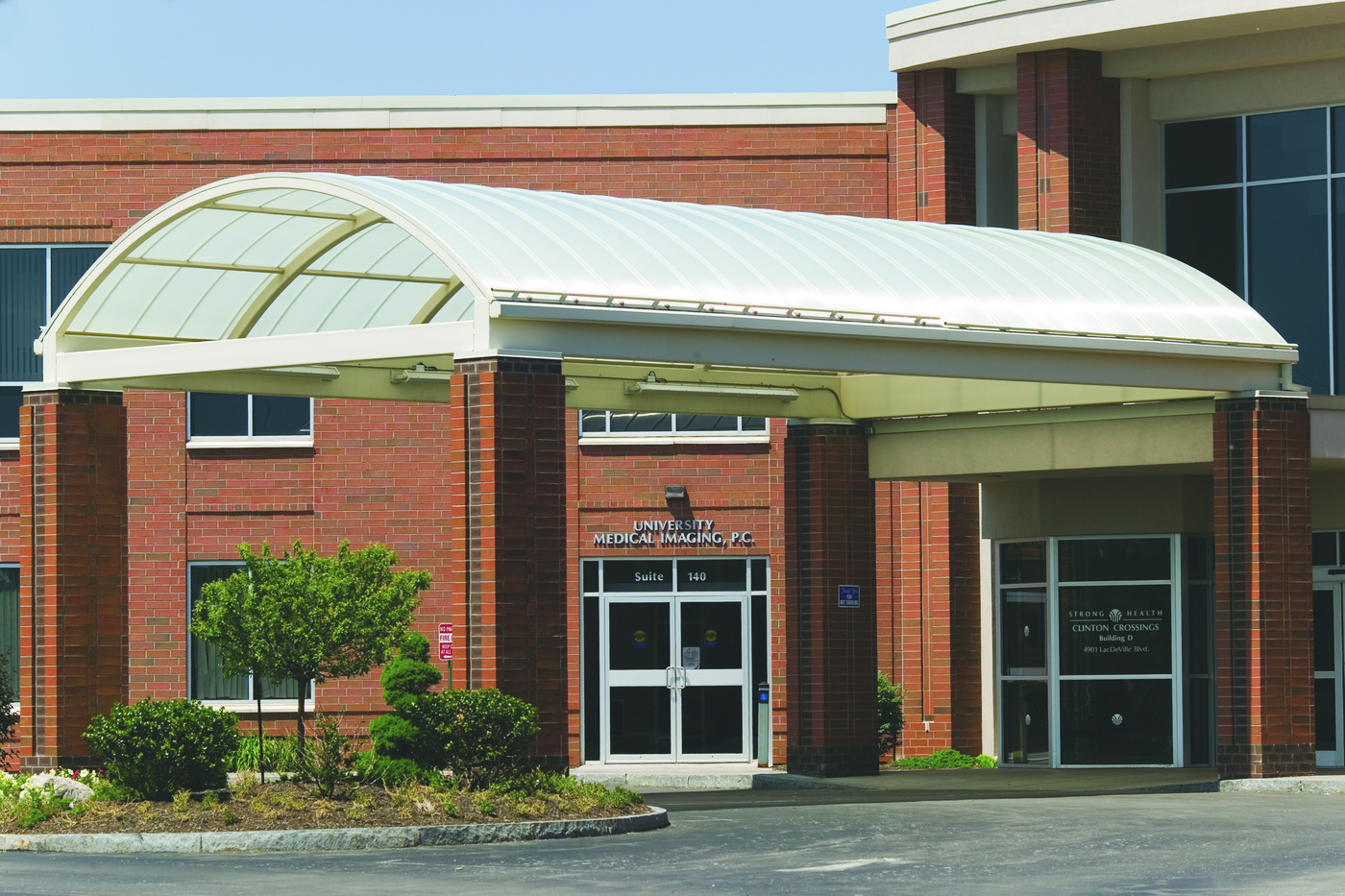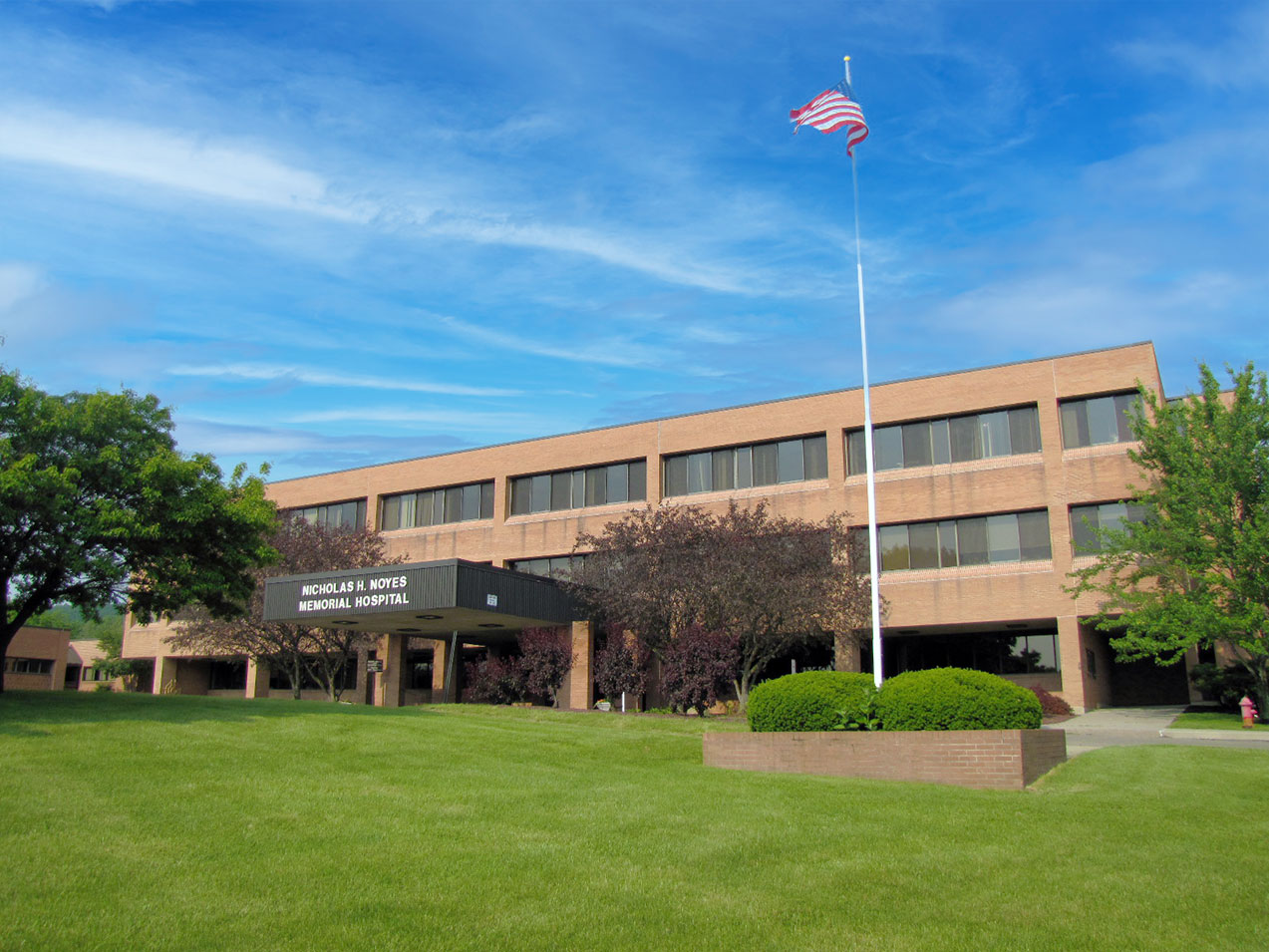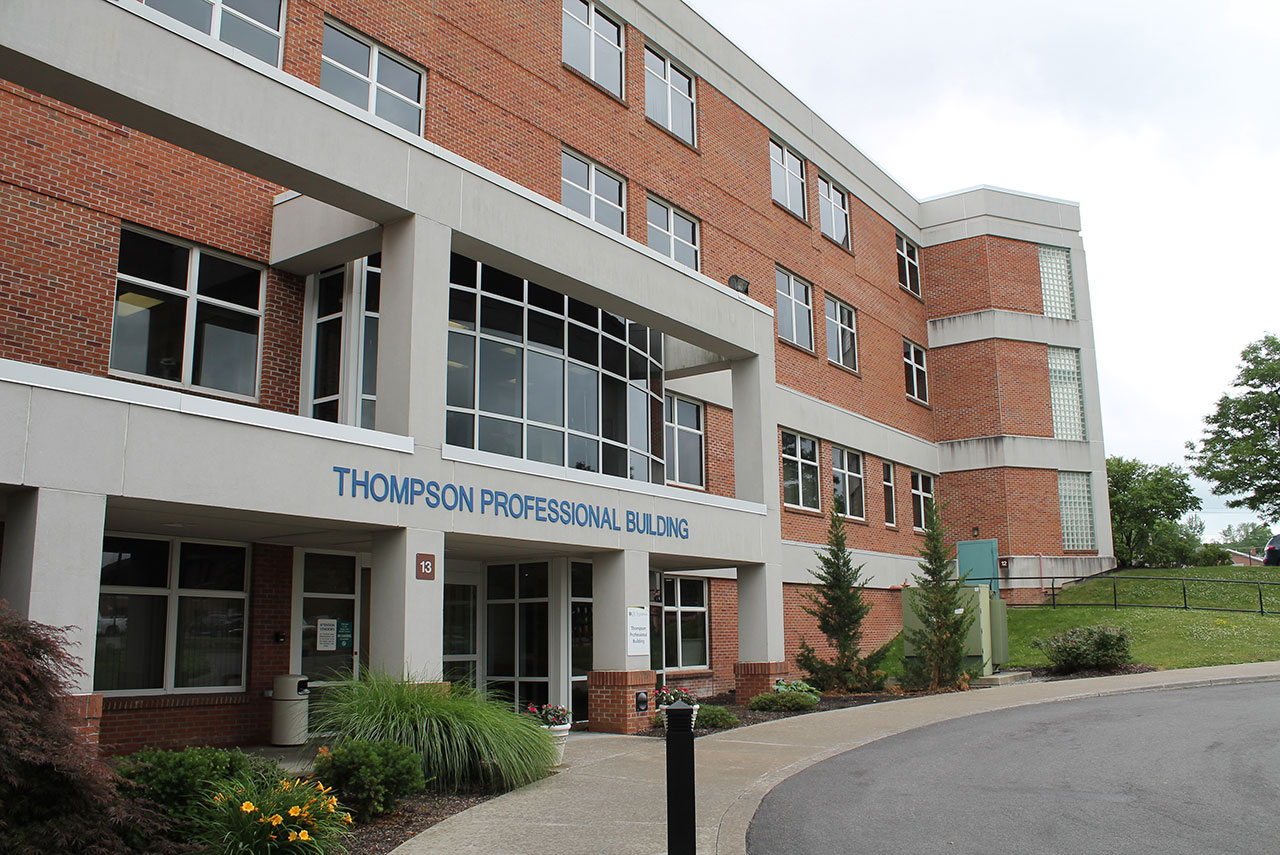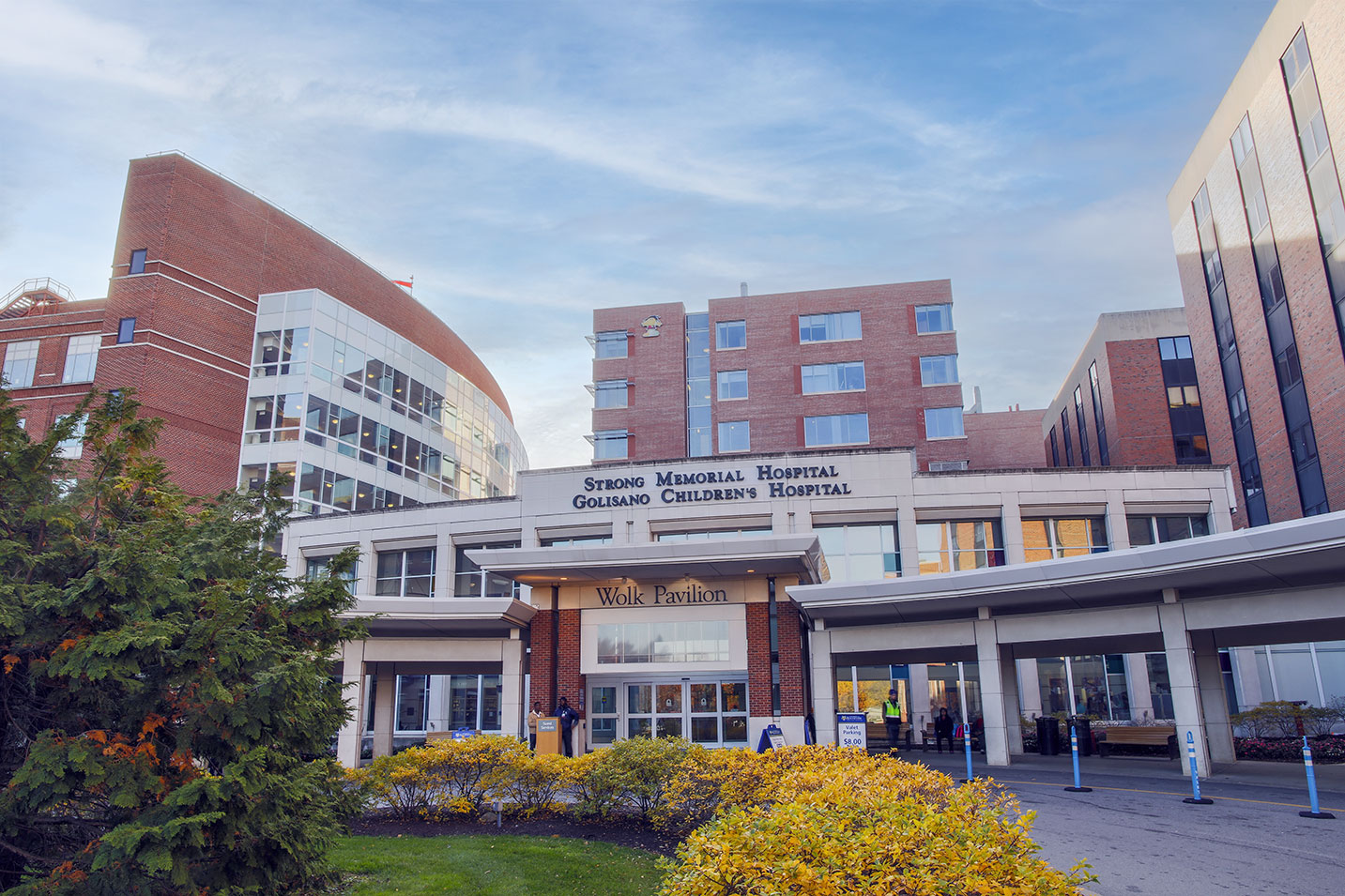Heart Rhythm (Electrophysiology)
Make Appointments & Get Care
Overview
Have you ever felt your heart skip a beat? Heart rhythm disorders and arrhythmias are quite common, with symptoms ranging from lightheadedness and dizziness to shortness of breath and fatigue.
UR Medicine’s Electrophysiology program offers some of the most advanced treatments available for heart rhythm disorders. In many cases, our treatments can permanently cure an arrhythmia, so no further medication is needed.
This program includes:
- Specialists in the treatment of heart rhythm disorders who treat thousands of cases each year.
- Treatments unavailable elsewhere in the Rochester region.
- Expertise that attracts patients from all over the world.
- Patient access to clinical trials exploring new methods for treating heart rhythm disorders.
- Three fully equipped labs for ablation and device implants, staffed by expert nurses and technicians.
- World-class expertise in identifying who needs defibrillators to prevent sudden cardiac death.
- Specialty clinics, such as the Comprehensive Atrial Fibrillation Clinic and the Hereditary Arrhythmia Clinic.
Our providers are experts in diagnosing and treating patients with heart rhythm issues, including:
-
Atrial fibrillation
-
Atrial flutter
-
Common and complex arrhythmias
-
Supraventricular tachycardia
-
Wolff Parkinson White Syndrome
-
Ventricular tachycardia, bradycardia
-
Sick sinus syndrome
-
Atrioventricular heart block
-
Long QT Syndrome
-
Brugada Syndrome
-
Catecholaminergic Polymorphic Ventricular Tachycardia.
UR Medicine's Approach
Our specialists create customized treatment plans for heart rhythm problems, addressing each patient’s unique needs. We use targeted tests and procedures to diagnose and treat arrhythmias, with treatment plans tailored to the type and severity of the condition. These plans are always thoroughly discussed with our patients.
Electrophysiology studies, or EP studies, are often used when other types of testing haven’t revealed the cause of symptoms. They’re commonly used to:
- Diagnose the source of arrhythmia symptoms
- Predict the risk of a future cardiac event, such as sudden cardiac death
- Assess the need for a pacemaker, implantable defibrillator, or other treatment procedure such as catheter ablation
- Evaluate the effectiveness of certain medications in controlling heart rhythm disorders
At UR Medicine Cardiac Care, EP studies are performed in our three state-of-the-art Electrophysiology labs, including an active magnetic robotic lab with updated computerized mapping and ablation systems. We offer the following procedures:
- Atrial fibrillation ablation
- Ventricular tachycardia ablation
- Implantable leadless pacemakers
- Cardioverter-defibrillator implant
- Remote monitoring of heart rhythm disorders
- Cardioversion
- Laser extraction of pacemaker leads
Frequently Asked Questions
Typically, you’ll come to the electrophysiology lab the day the procedure is performed. A nurse will review the procedure with you, and you’ll be prepped for the procedure.
The test is performed with the assistance of sedation (either conscious, or short-acting) and administered through an intravenous (IV), or less commonly, with general anesthesia. Some patients are awake enough to answer questions and watch the procedure on monitors, others fall asleep.
Doctors numb the groin area with local anesthetic, before inserting two or three catheters (narrow, flexible tubes) into a vein and guiding them to the heart.
Fluoroscopy (similar to X-ray) is used to guide the physician in advancing the catheters and provides real-time pictures of the catheters and heart.
Once the catheters are in place, electrodes at the tips gather data and numerous electrical measurements are made.
Electrical signals may also be delivered through the catheters to induce a fast heart rhythm. Sometimes, medications are given to trigger a fast rhythm as well.
If no further procedures are indicated, the catheters are removed from the groin site, pressure is applied, and a band-aid is placed on the site. Patients are asked to lie flat for two hours following the procedure.
An EP study typically takes between 30 and 60 minutes.
Depending on the results of the EP study, patients may be able to go home the same day.
Electrophysiology study is considered a minimally invasive procedure. Even so, there are several risks that patients should be aware of including:
- Bleeding from the incision site
- Damage to blood vessels by the catheter
- Blood clots
- Worsened arrhythmia symptoms
- Injury to the heart
What Sets Us Apart?
The Electrophysiology division at the University of Rochester is a world leader. Our clinicians and researchers have led many of the clinical research that have guided how patients with arrhythmia, or at risk for arrhythmia, are cared for.
We offer the most advanced and effective treatments for heart rhythm disorders and perform more of them than any other hospital in the Rochester metropolitan area and surrounding region. In many cases, the treatments we provide are unavailable elsewhere. Other medical centers use our guidelines when deciding which patients need treatment for serious cardiac rhythm problems.
We have three fully equipped labs for ablation and device implants. These labs are staffed by nurses and technicians who work exclusively on heart rhythm disorders. Our newest lab provides robotic navigation for radiofrequency ablation, giving our patients even greater precision, safety and versatility.
Locations
View All LocationsWe serve you in the Rochester metropolitan area and surrounding region.
View All Locations15 locations
Clinton Crossings, Building G
2400 South Clinton Avenue, 1st Floor
Rochester, NY 14618
Noyes Memorial Hospital
111 Cara Barton Street
Dansville, NY 14437
Thompson Professional Building
395 West Street, Suite 307
Canandaigua, NY 14424
Finger Lakes Cardiology
410 Clifton Springs Professional Park
Clifton Springs, NY 14432
48 East South Street, 2nd Floor
Geneseo, NY 14454
999 East Ridge Road, Suite 1000
Rochester, NY 14621
Eastside Family YMCA
1835 Fairport Nine Mile Point Road, Suite 200
Penfield, NY 14526
Lifecare Medical Associates
1991 Balsley Road
Seneca Falls, NY 13148
Jones Memorial Hospital
191 North Main Street, 3rd floor
Wellsville, NY 14895
Strong Memorial Hospital
601 Elmwood Avenue, Ground Floor, G-1200
Rochester, NY 14620
Canal View Office Complex
140 Canal View Boulevard, Suite 102
Rochester, NY 14623
St. James Medical Office Building
7309 Seneca Road North, Suite 102
Hornell, NY 14843





